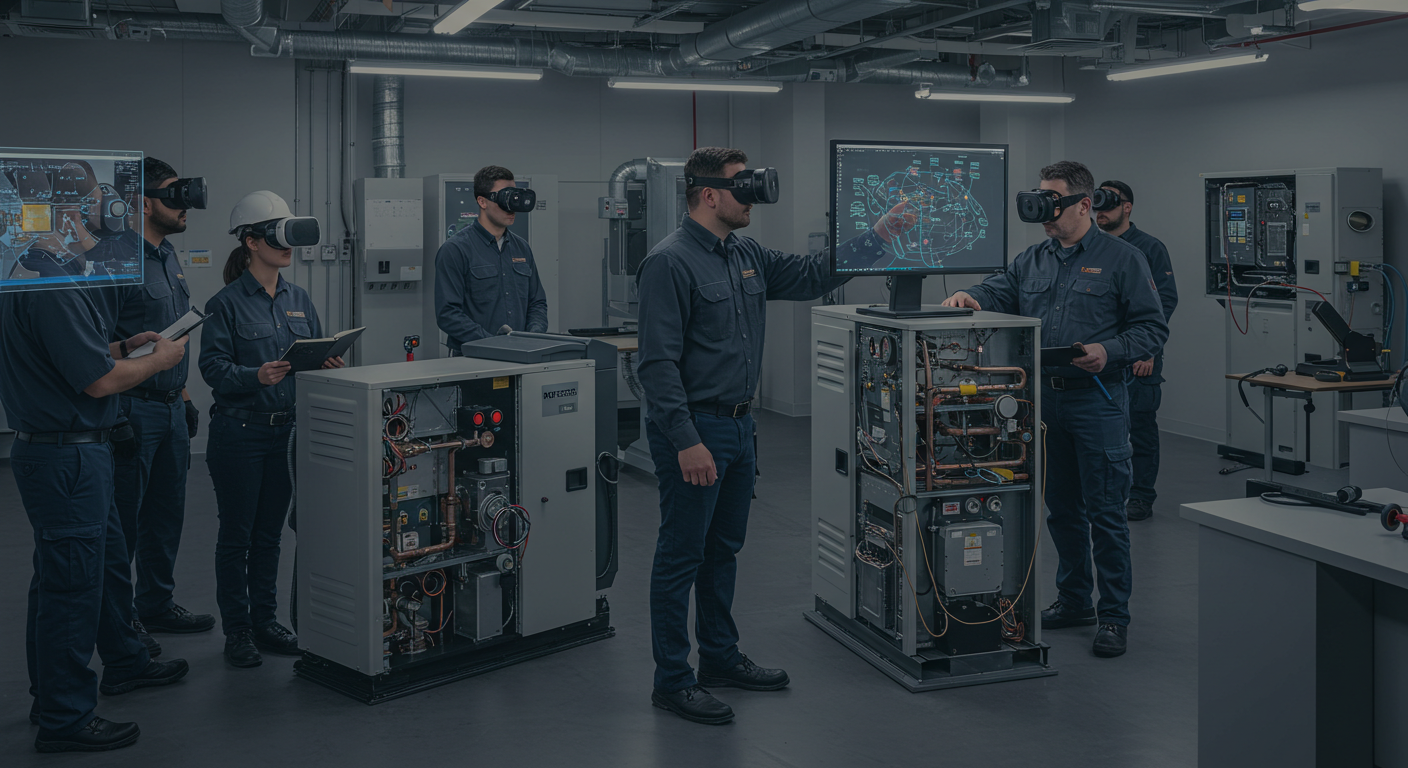
The Future of Online HVAC Training: Embracing Technology and Flexibility
As we step into 2025, the landscape of HVAC training is rapidly evolving to meet the demands of a modern workforce. With online HVAC training enrollment soaring by nearly 30% from 2024 to 2025, it’s clear that digital HVAC training courses are becoming the preferred route for many aspiring technicians. In this post, we’ll explore the factors driving these trends and what they mean for the future of HVAC education.
The Rise of Virtual HVAC Certification Programs
The demand for HVAC technicians is growing at an impressive rate, with a projected 9% job growth from 2023 to 2033. However, the industry faces a significant challenge: there are approximately 1.8 job openings for every available HVAC worker, leading to a potential shortage of 225,000 technicians nationwide. This gap has fueled the rise of HVAC e-learning, offering a flexible and accessible solution for training the next generation of HVAC professionals.
Advantages of Remote HVAC Technician Training
Leading online HVAC programs are designed to be both comprehensive and flexible. They blend self-paced learning with interactive tools like videos and 3D simulations, allowing students to complete entry-level certifications in as little as 4 to 12 months. These programs often cover essential certifications like EPA Section 608 and NATE, which are highly valued by employers.
Cost-Effective and Accredited Education
Cost is a crucial factor for many pursuing a career in HVAC. Online programs generally range from $2,600 to $7,000 and frequently offer payment plans and bundled resources like digital textbooks or training kits. Accreditation by bodies such as HVAC Excellence, PAHRA, and DEAC ensures that these programs provide nationally recognized credentials, making graduates more attractive to potential employers.
- Flexible, self-paced learning options
- Cost-effective with financial aid options
- Accredited programs with national recognition
- Hands-on practicums or local externships included
- Emphasis on smart technology and automation training
Hybrid Learning Models and Technological Advancements
Hybrid learning models are increasingly popular, combining online theoretical learning with in-person skill assessments. This approach ensures that students not only gain foundational knowledge but also develop practical skills necessary for the job. With advancements in system controls and diagnostics, online HVAC training is prioritizing smart technology and automation.
Embracing New Technologies
Programs are incorporating training on advanced systems like Daikin’s VRV systems, which are integral to modern HVAC applications. These systems, available through various distributors, are featured in simulation-based training modules, preparing students for real-world scenarios in both commercial and residential environments.
Conclusion
The future of HVAC education is firmly rooted in online and hybrid training models. By leveraging technology and offering flexible, cost-effective solutions, these programs are not only addressing the technician shortage but also equipping students with the skills needed to thrive in a rapidly changing industry. As we look ahead, the emphasis on technological proficiency and industry-aligned credentials will continue to shape the path for HVAC professionals.
Ready to start your HVAC career journey? Explore online certification programs today and take the first step towards a rewarding future in HVAC.
FAQ: Advancements in HVAC Education
What are the benefits of online HVAC training? Online HVAC training offers flexibility, cost savings, and access to interactive learning tools, making it an attractive option for many students.
How long does it take to complete an online HVAC certification program? Most programs can be completed in 4 to 12 months, depending on the student’s pace and the program’s structure.
What certifications should I aim for in HVAC training? Essential certifications include EPA Section 608 and NATE, which are preferred by employers for job readiness.
Are online HVAC programs accredited? Yes, top programs are accredited by bodies like HVAC Excellence, PAHRA, and DEAC, ensuring national recognition of credentials.
What role does technology play in modern HVAC training? Technology is central to HVAC training, with a focus on smart systems, automation, and simulation-based learning to prepare students for the future.

